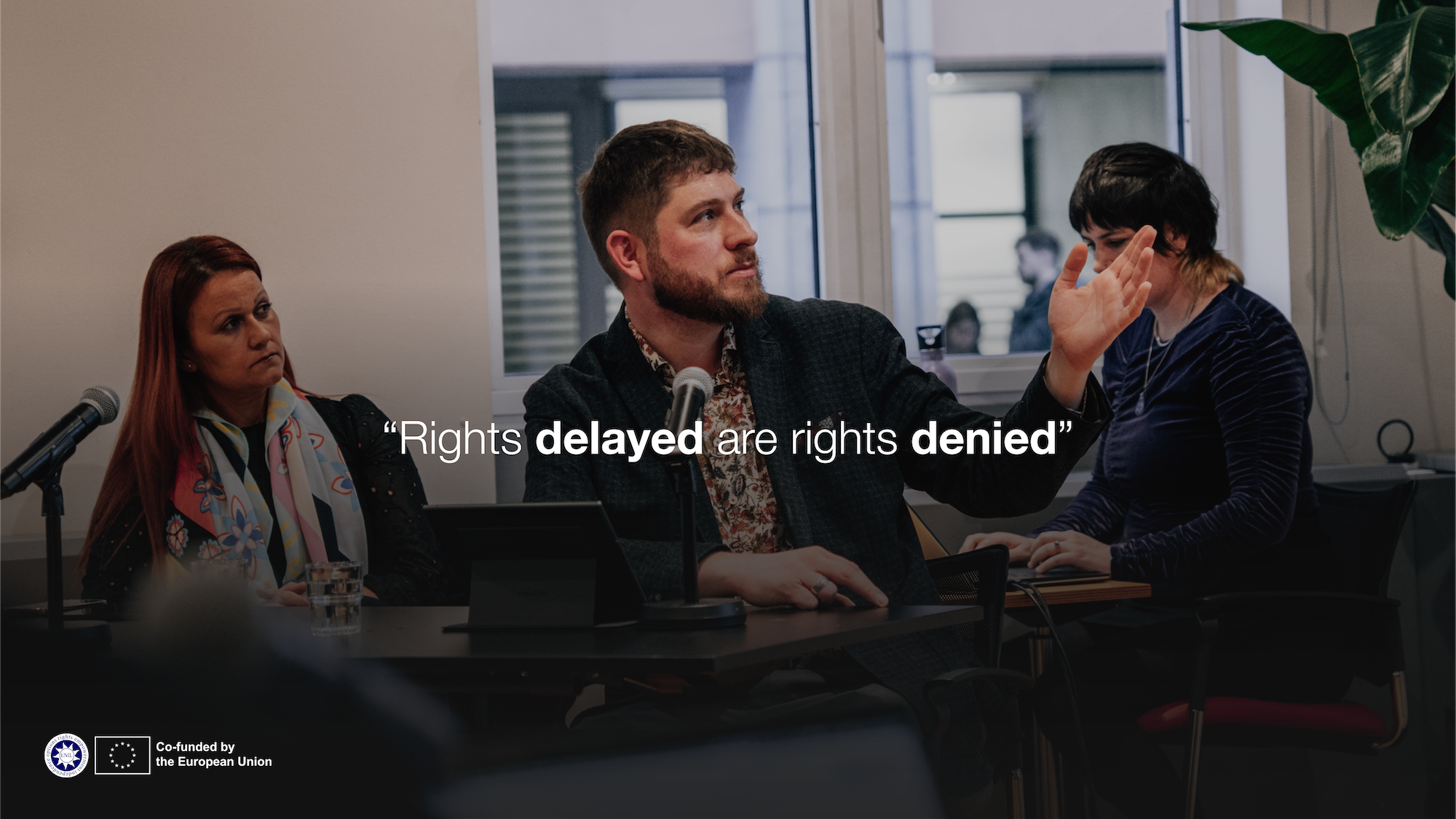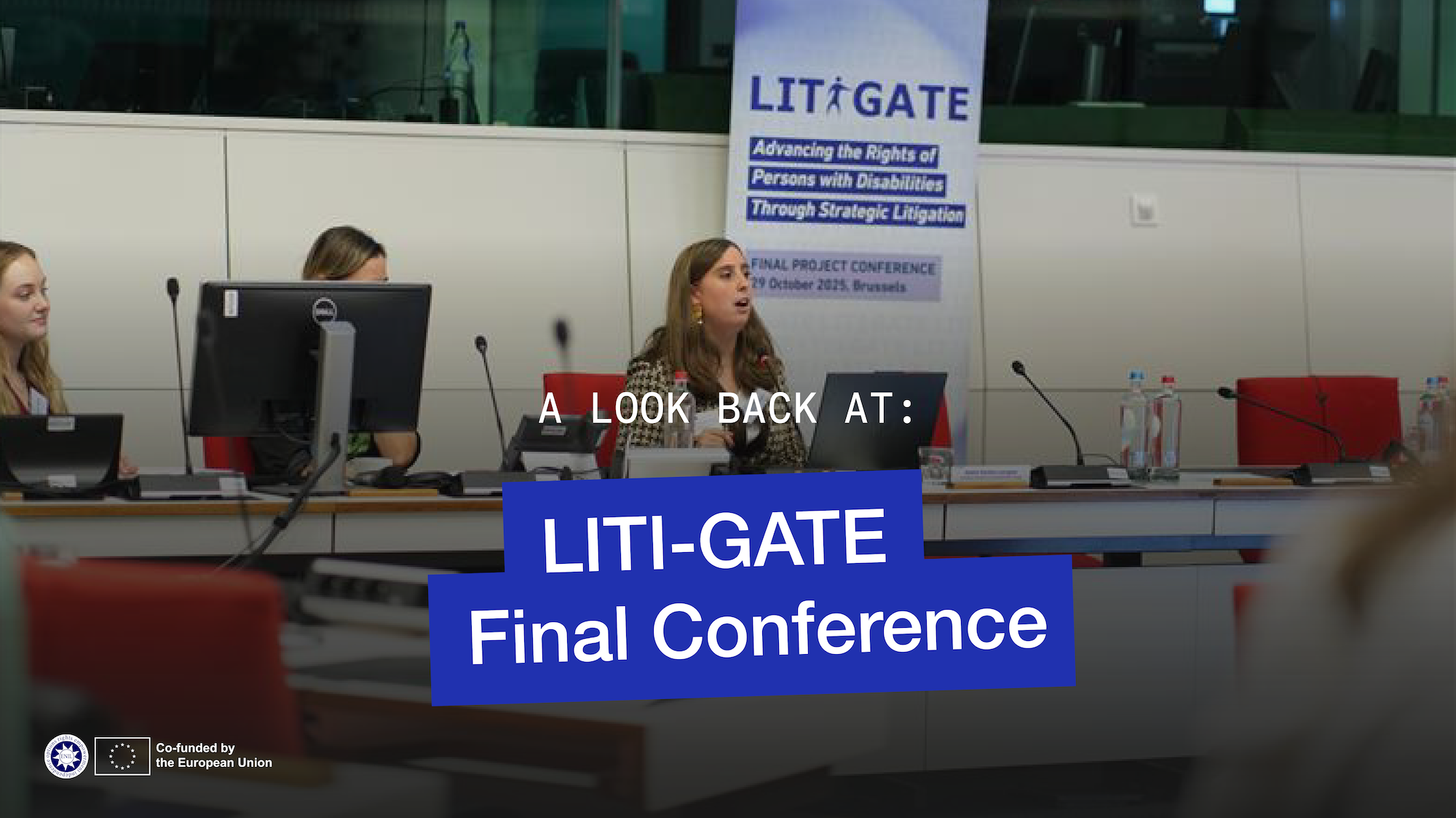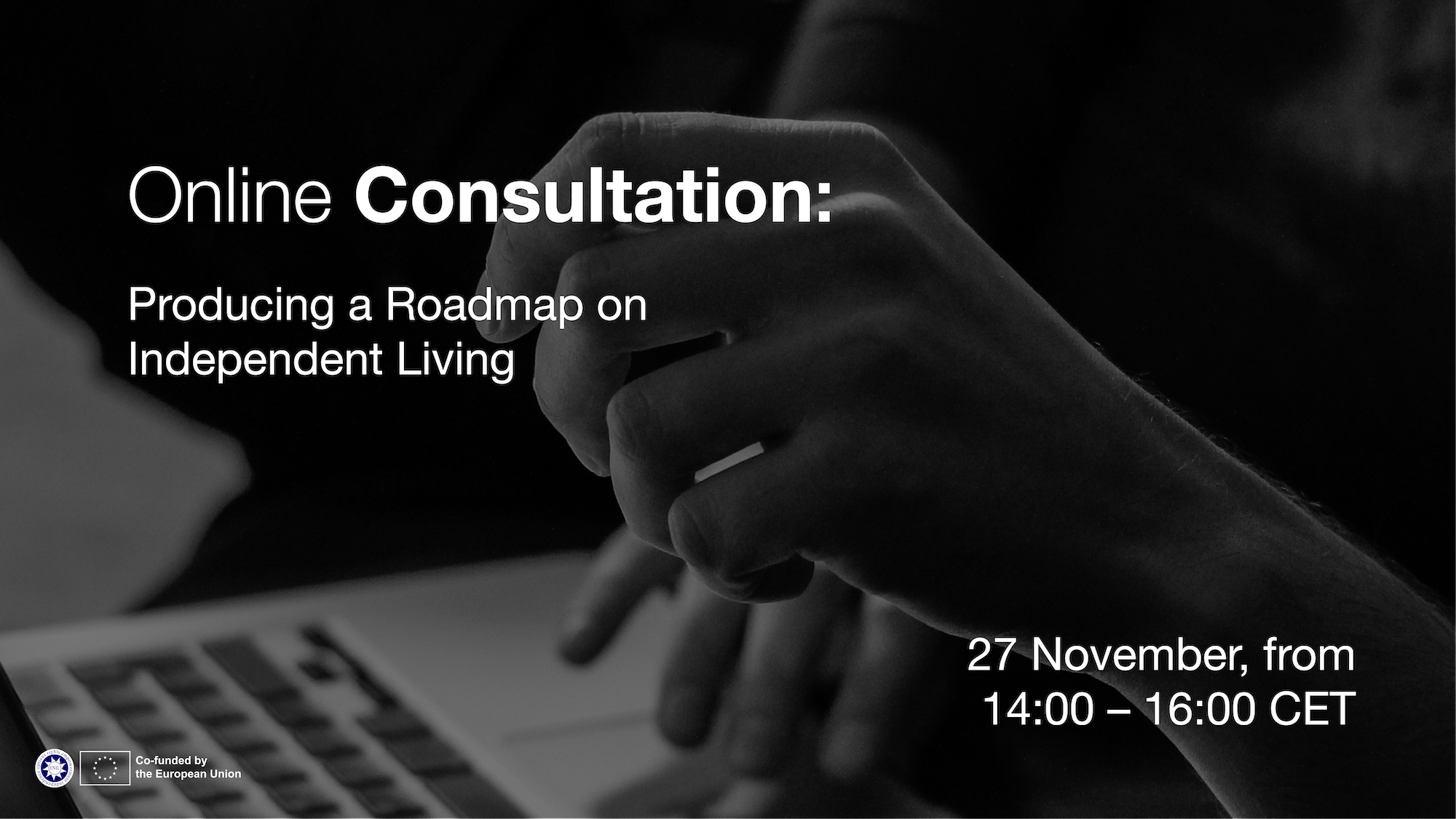From 18-19 June, ENIL attended the European Social Fund (ESF) Transnational Platform Seminar in Brussels. This seminar is the annual conference of the different ESF Thematic Networks (TNs), which were set up to ensure cooperation between different countries – NGOs and public authorities – when it comes to the use of ESF. There are 8 TNs (Employment, Youth employment, Learning and skills, Social economy, Social inclusion, Governance, Simplification, Partnership and Migrants). ENIL is a member of two of them – on Inclusion and Partnership.
The conference started with a video message European Commissioner for Employment and Social Affairs Marianne Thyssen. The Commissioner highlighted the need to make sure ESF becomes simpler and has a stronger focus on the social rights which were recently reaffirmed in the European Pillar of Social Rights.
Throughout the conference, different speakers emphasized that the ESF budget is relatively low. In the new ESF+ programme, the budget would need to be increased to facilitate the transition to a digital economy and kick start innovative social services, to make sure all EU citizens can enjoy the same social rights. On the other hand, participants agreed that, while you need a budget to support innovative practices, the real key to achieving social inclusion is working in partnership with people on the ground.
During the seminar, several panels and workshops explored ways of putting the partnership principle into practice and actively working with European citizens who are benefiting from the projects set up by ESF. One of the workshops focused on co-production and included the presentation of the Co-production – enhancing the role of citizens in governance and service deliverymanual, recently published by the TN on Partnership. During this workshop, ENIL’s Advocacy Officer Frank Sioen presented the concept of co-production to highlight that partnership should go beyond consulting people.
A co-productive approach requires an understanding that different partners, like NGOs, public authorities and users of the ESF projects, all have different knowledge and skills to contribute to a project. At the moment, the public authorities have the strongest voice in ESF projects. A co-production approach would change this and make sure all partners in an ESF project get the support they need to have an equal voice in the debate. By sharing decision-making power and using the expertise of the different partners, ESF projects can become more effective and respond better to the needs of EU citizens, because EU citizens will have co-created the project.
The final session of the seminar recognised the importance of partnership and co-production, but stressed that employment remains the most important and easiest way of accessing social rights.
This led to the conclusion that ESF+ should keep its focus on guiding people towards employment and facilitating the transition to new ways of working. Partnership can help achieve this goal. However, partnership will not yet be used to fully involve people in the process and investigate if ESF projects could support them to address underlying barriers (like stigma or lack of accessibility), which block them from the labour market.
It was good to see partnership and people were the central points during this seminar. However, we cannot help but wonder if access to employment is really the best way to move from employability to social rights?


